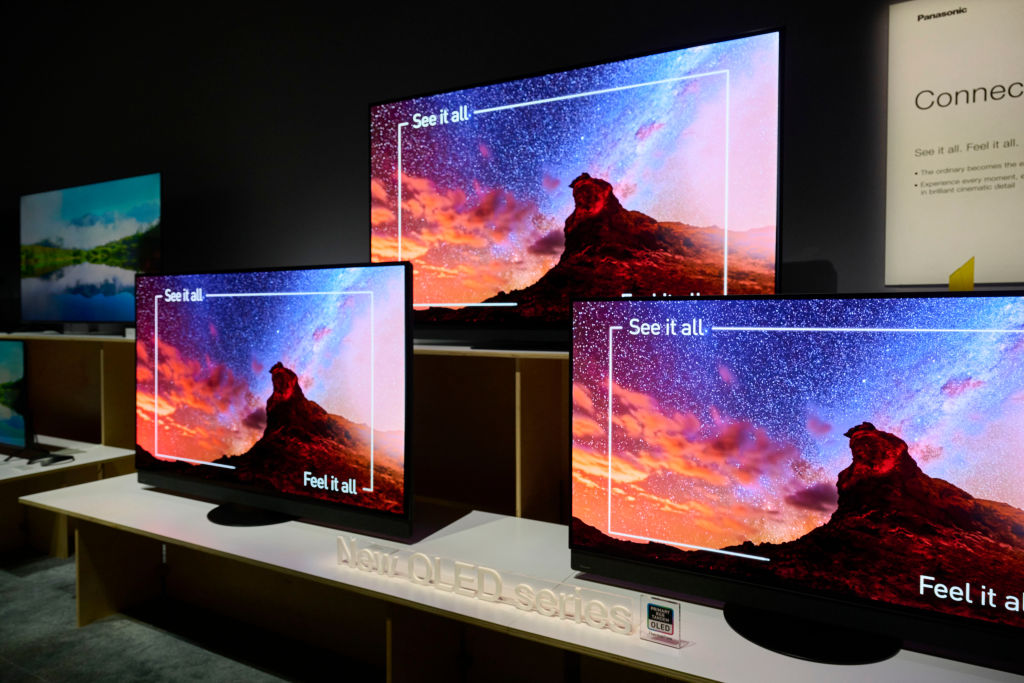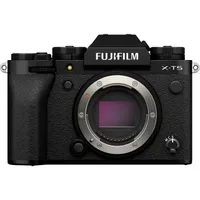Japan Tariffs: 5 Things That Might Get More Expensive for You
President Donald Trump's agreement with Japan features a 15% reciprocal tariff for all imported products.


Profit and prosper with the best of Kiplinger's advice on investing, taxes, retirement, personal finance and much more. Delivered daily. Enter your email in the box and click Sign Me Up.
You are now subscribed
Your newsletter sign-up was successful
Want to add more newsletters?

Delivered daily
Kiplinger Today
Profit and prosper with the best of Kiplinger's advice on investing, taxes, retirement, personal finance and much more delivered daily. Smart money moves start here.

Sent five days a week
Kiplinger A Step Ahead
Get practical help to make better financial decisions in your everyday life, from spending to savings on top deals.

Delivered daily
Kiplinger Closing Bell
Get today's biggest financial and investing headlines delivered to your inbox every day the U.S. stock market is open.

Sent twice a week
Kiplinger Adviser Intel
Financial pros across the country share best practices and fresh tactics to preserve and grow your wealth.

Delivered weekly
Kiplinger Tax Tips
Trim your federal and state tax bills with practical tax-planning and tax-cutting strategies.

Sent twice a week
Kiplinger Retirement Tips
Your twice-a-week guide to planning and enjoying a financially secure and richly rewarding retirement

Sent bimonthly.
Kiplinger Adviser Angle
Insights for advisers, wealth managers and other financial professionals.

Sent twice a week
Kiplinger Investing Weekly
Your twice-a-week roundup of promising stocks, funds, companies and industries you should consider, ones you should avoid, and why.

Sent weekly for six weeks
Kiplinger Invest for Retirement
Your step-by-step six-part series on how to invest for retirement, from devising a successful strategy to exactly which investments to choose.
Tariffs have been a dominating topic since Donald Trump became president again. As trade deals finalize, we're starting to get a clearer picture of how tariffs will impact prices moving forward.
Trump secured a trade deal with Japan last week that includes a 15% tariff on Japanese goods. He said of the agreement: "I just signed the largest trade deal in history; I think maybe the largest deal in history with Japan."
The good news, at least for Japanese automakers, is that the 15% tariffs will cover automobiles and automotive parts, which gives them an edge over other car companies that incur 25% tariffs, particularly for cars and parts made in Canada.
From just $107.88 $24.99 for Kiplinger Personal Finance
Become a smarter, better informed investor. Subscribe from just $107.88 $24.99, plus get up to 4 Special Issues

Sign up for Kiplinger’s Free Newsletters
Profit and prosper with the best of expert advice on investing, taxes, retirement, personal finance and more - straight to your e-mail.
Profit and prosper with the best of expert advice - straight to your e-mail.
On the other side of the deal, Japan pledges to invest $550 billion in the U.S. to build reliable supply chains in pharmaceuticals and semiconductors, while also purchasing up to $8 billion in agricultural food. Its importers will also pay a 15% reciprocal tariff on supplies.
While leaders from both countries praise this deal, it's still a tariff, which means companies could absorb some of these costs or pass them on to you. Here are five shopping verticals that might become more expensive for you as a result of this trade policy.
Expect to pay more for your next car

If you plan to buy a foreign vehicle made with parts from Japan, you can expect to see some of those extra costs. Even with the lower tariffs imposed, 15% is a substantial fee to pay to import cars overseas. These companies won't eat all the total costs forever.
How much will it cost you to buy a new Toyota, Nissan or Mazda? Prices could increase up to $6,000 for new vehicles, per Kelley Blue Book.
Keep in mind that not only will this affect the sticker price you'll pay, but it also impacts all other facets of owning a car, such as paying more in sales tax, financing, car repairs and insurance.
Certain TVs could become pricier

Some of the most common television brands, such as Sony, Panasonic, Sharp and Hitachi, come from Japan. We're already seeing significant signs of price increases for specific models, though these companies aren't saying it's due to tariffs.
Here's an example:
When Sony released the 65-inch Bravia A80L OLED in 2023, its price was $2,500. The newest model now goes for $3,400, according to Vocal, an increase of $900. This is at a time when Tom's Guide found prices for OLED models were dropping below the $1,000 mark.
That said, there's good news: You can secure an exceptional deal on older models. Here's a Sony OLED for under $1,900, where you'll save $400:
Sony - 65" Class BRAVIA 8 OLED 4K UHD Smart Google TV
Save $400 on this 2023 model, which includes pure OLED contrast, powerful TV processing for a more robust viewing experience and a smart hub for all your apps.
Say cheese: Your next camera could make you smile less
Fujifilm shifted production of its X series cameras from China to Japan because of the economic uncertainty about tariffs. While Japan didn't incur a 51% combined tariff on imported goods as China does, that 15% still means higher costs, at a time when some camera companies are already raising prices.
Digital Photography Review reports that some camera makers have raised prices due to tariffs. Cannon's average price hike was 9.7%, with price increases for models ranging from $100 to $500.
This means if you're looking for a digital camera from Fujifilm, now is the time to capitalize before price increases go into effect:
Fujifilm X-T5 Mirrorless Camera, Black
Per Tom's Guide, this camera scored a 4.5 out of 5 for its compact size and high-performance capabilities.
Your next joy ride might come at a higher cost
Japan has built a reputation for its stylish and nimble motorcycles from brands such as Honda, Yamaha, Suzuki and Kawasaki. Tariffs have hit the motorcycle market hard.
Some dealers report shortages of imported motorcycles, in part due to companies waiting to see how the tariffs play out. That shortage created a buyer's frenzy for older models, while the few newer models increased from $2,000 to $5,000 on average per West Coast Shipping. Expect this trend to continue.
Japanese drinks and food are expected to increase in price

Japan exports all sorts of tasty goodies to the U.S. If you're a fan of Japanese whiskey, sake, green tea and matcha, caviar, sushi and other items, the tariffs will hit your wallet.
While it's hard to determine by how much prices will increase, you can look at the big picture. The Yale Budget Lab found that the overall tariff rate customers pay is 20.2%, the highest it's been since 1911. On average, tariffs will cost the average household $2,700 more than regular expenses for 2025.
Ultimately, the 15% reciprocal tariff reached between Japan and the U.S. is far better than the original 25% proposed. On top of this, Japan's pledge of $550 billion into the U.S. economy to build supply chains in key sectors is a good thing, as it will create jobs.
At the same time, tariffs are still taxes, and someone must pay them. This means you can expect the costs of some of these goods to increase, which means now is the ideal time to secure a deal.
Too bad you can't stock up on fresh sushi.
Related content
- What to Stock Up On (and What to Skip) Before Tariffs Raise Prices
- What New Tariffs Mean for Car Shoppers
- What’s Happening With Trump Tariffs? New Deals and Rates to Know
Profit and prosper with the best of Kiplinger's advice on investing, taxes, retirement, personal finance and much more. Delivered daily. Enter your email in the box and click Sign Me Up.

Sean is a veteran personal finance writer, with over 10 years of experience. He's written finance guides on insurance, savings, travel and more for CNET, Bankrate and GOBankingRates.
-
 Quiz: Do You Know How to Avoid the "Medigap Trap?"
Quiz: Do You Know How to Avoid the "Medigap Trap?"Quiz Test your basic knowledge of the "Medigap Trap" in our quick quiz.
-
 5 Top Tax-Efficient Mutual Funds for Smarter Investing
5 Top Tax-Efficient Mutual Funds for Smarter InvestingMutual funds are many things, but "tax-friendly" usually isn't one of them. These are the exceptions.
-
 AI Sparks Existential Crisis for Software Stocks
AI Sparks Existential Crisis for Software StocksThe Kiplinger Letter Fears that SaaS subscription software could be rendered obsolete by artificial intelligence make investors jittery.
-
 5 Top Tax-Efficient Mutual Funds for Smarter Investing
5 Top Tax-Efficient Mutual Funds for Smarter InvestingMutual funds are many things, but "tax-friendly" usually isn't one of them. These are the exceptions.
-
 Why Invest In Mutual Funds When ETFs Exist?
Why Invest In Mutual Funds When ETFs Exist?Exchange-traded funds are cheaper, more tax-efficient and more flexible. But don't put mutual funds out to pasture quite yet.
-
 Social Security Break-Even Math Is Helpful, But Don't Let It Dictate When You'll File
Social Security Break-Even Math Is Helpful, But Don't Let It Dictate When You'll FileYour Social Security break-even age tells you how long you'd need to live for delaying to pay off, but shouldn't be the sole basis for deciding when to claim.
-
 I'm an Opportunity Zone Pro: This Is How to Deliver Roth-Like Tax-Free Growth (Without Contribution Limits)
I'm an Opportunity Zone Pro: This Is How to Deliver Roth-Like Tax-Free Growth (Without Contribution Limits)Investors who combine Roth IRAs, the gold standard of tax-free savings, with qualified opportunity funds could enjoy decades of tax-free growth.
-
 One of the Most Powerful Wealth-Building Moves a Woman Can Make: A Midcareer Pivot
One of the Most Powerful Wealth-Building Moves a Woman Can Make: A Midcareer PivotIf it feels like you can't sustain what you're doing for the next 20 years, it's time for an honest look at what's draining you and what energizes you.
-
 Stocks Make More Big Up and Down Moves: Stock Market Today
Stocks Make More Big Up and Down Moves: Stock Market TodayThe impact of revolutionary technology has replaced world-changing trade policy as the major variable for markets, with mixed results for sectors and stocks.
-
 I'm a Wealth Adviser Obsessed With Mahjong: Here Are 8 Ways It Can Teach Us How to Manage Our Money
I'm a Wealth Adviser Obsessed With Mahjong: Here Are 8 Ways It Can Teach Us How to Manage Our MoneyThis increasingly popular Chinese game can teach us not only how to help manage our money but also how important it is to connect with other people.
-
 Looking for a Financial Book That Won't Put Your Young Adult to Sleep? This One Makes 'Cents'
Looking for a Financial Book That Won't Put Your Young Adult to Sleep? This One Makes 'Cents'"Wealth Your Way" by Cosmo DeStefano offers a highly accessible guide for young adults and their parents on building wealth through simple, consistent habits.

